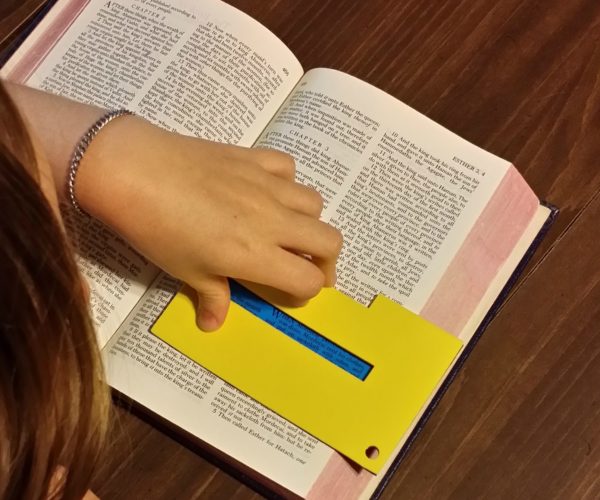Research
Informal Study of the Reading Focus Cards (2007)
Summary
An informal study (2007) of the Reading Focus Card (U.S.Patent 7,565,759) was conducted in a St. Louis elementary school for a period of 2 weeks with both a general 6th grade population (with no known learning disabilities) and a resource classroom (with all students having special learning needs). This was an informal study as the students themselves reported via a written survey about their experiences using the Reading Focus Cards during that 2-week period. The results of the study were as follows:
- It was found that 10% of students in the general population classroom reported increased focus and concentration when using the Reading Focus Cards.
- In the special needs classroom, approximately 90% of the students reported better focus and great concentration when using the Reading Focus Cards. It was noted at the conclusion of this study that those 10% who did not experience any change had been previously diagnosed with auditory processing disorders.


Formal Study of the Reading Focus Cards (2011)
Purpose & Overview of the Study
A formal study of the physical Reading Focus Cards (U.S. Patent 7,565,759) was conducted in 2011. The purpose of the study was to determine if use of the Reading Focus Cards could significantly improve some reading skill areas in secondary students with disabilities.
This study was conducted in a Central Missouri high school. The students involved in this study were from 15 to 18 years old, in grades 10-12 and enrolled in a program called Rewards Reading. This was a remedial reading class for students with various learning disabilities, who at the time were receiving special education services. The reading skills measured in this project included comprehension, decoding and fluency. The primary investigator in the study was an experienced reading specialist and a member of the high school faculty where the study was conducted.
How the Study Was Conducted
The independent researcher (reading specialist) chose participants on a volunteer basis. The researcher did not consider attendance, grades, or any other factors regarding these participants. The population used in this study was truly diverse.
Standard assessment tools were used and cited to measure the various skill areas. Timed readings were administered to determine the increase in fluency, measuring correct words per minute.
Abstract
Student learning was impacted by this study. Participants became more fluent readers and were able to keep their places while reading. The researcher noticed that the number of participants who repeated words or skipped entire lines of the passage significantly decreased. The participants as well as the researcher were pleased with their progress, which also included an increase in self-confidence when reading.
For the results of the formal study by A. Godwin, click here.
